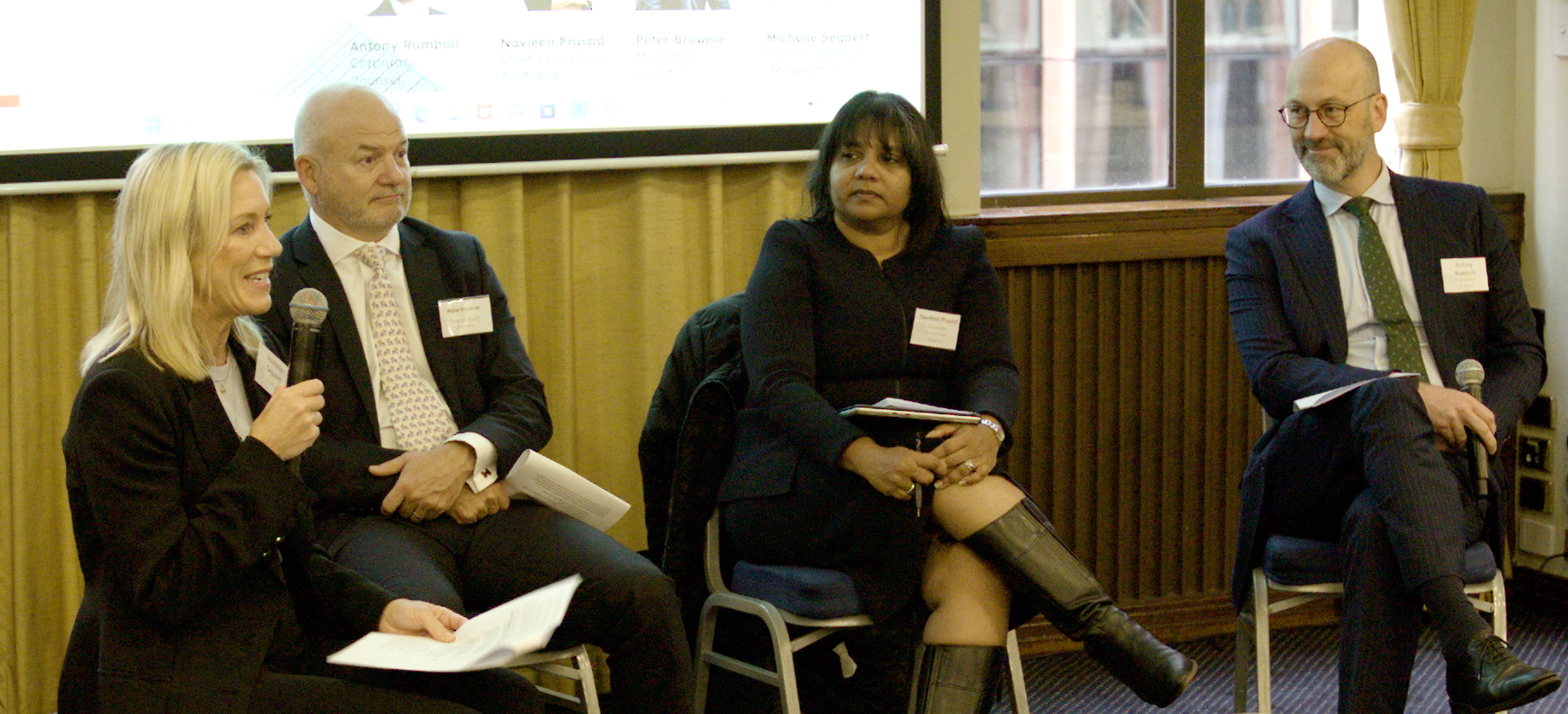Concern over plans for new M&A rules
07 Jun 2024 - News

A proposed $35 million transaction value threshold for mergers and acquisitions to be reviewed by the Australian Competition and Consumer Commission (ACCC) is too low, private equity industry figures have warned.
The $35 million threshold is included in changes to the mergers and acquisitions regime flagged by Treasurer Dr Jim Chalmers in May.
M&A rule changes, how will they affect private equity? was the topic of a panel discussion at a Private Equity Breakfast in Sydney on 6 June.
Panel members Peter Brownie, managing director of advisory firm Stanton Road Partners; Navleen Prasad, chief executive of industry association Australian Investment Council; and Antony Rumboll general counsel at Adamantem Capital; agreed the proposed threshold for review by the ACCC was the most important point of concern in the proposed rule changes.
Rumboll said a threshold of $35 million would mean all primary transactions entered into by Adamantem − a mid-market firm − would need to be reviewed by the ACCC. He contrasted that with the fact that only one Adamantem deal had raised competition concerns to date since the firm was established in 2016.
Prasad said the industry needed to be very alert to the proposed rule changes rather than alarmed. She said the changes remained proposals rather than draft legislation and they had already been substantially modified from the ACCC’s suggestions made last year. The ACCC had initially proposed a regime under which parties intending to make an acquisition would be required to prove it would not lessen competition. Prasad noted that the Treasurer had not included that proposal.
Prasad said Chalmers had also noted he did not expect the number of reviews of transactions by the ACCC to change much from the average of around 300 a year over the last ten years. [ACCC chair Gina Cass Gotlieb has said she wants to ensure the right transactions are examined rather than a larger number.]
The new regime is slated to come into force at the beginning of 2006, but Prasad said there was no certainty that required legislation would be passed before the federal government faced an election. Assuming the election is called for May, next year, Parliament will only sit for 14 weeks before then and it is not known where this bill will sit on the legislative agenda.
Brownie said, if implemented, the proposed changes will bring about the biggest revamp of the Australian mergers and acquisitions regime in 40 years. Transaction reviews would change from voluntary to compulsory. There was much more in the proposals to consider, including a transaction fee scale which is yet to be outlined.
But he said it was important to take a wider view of the current state of private equity mergers and acquisitions than just the proposed rule changes.
For many years the M&A market had moved in ten-year cycles. One cycle ended with the 1987 stock market crash, then the dotcom crash of 2000 and the Global Financial Crisis in 2008. But over the last five years we have experienced a number of once-in-one-hundred-year events. We had COVID, the invasion of Ukraine, and a period of rapid interest rate rises. The market remains “very noisy”, he said.
Brownie said another important feature of the current market was that it included “haves” and “have nots”. The haves are quality businesses with identified growth frameworks. There is a lot of demand for these assets and they are being sold on high EBITDA multiples, in the high teens and some even in the twenties.
The other part of the market is much tougher. That is where we will see more noise, with assets that don’t necessarily have a growth story don’t necessarily have pricing power. Potential purchasers will wonder what they can do with the businesses.
It is to be hoped that the market will stabilise but external influences are still having effects. It will be interesting to see what governments do. They have been bottomless pits of spending. That will have to stop at some point. What will that mean for the consumer?
But hopefully we are getting back to some stability and will not have once-in-one-hundred-year events every year, Brownie said.
Rumboll said his firm had not been much affected by ups and downs in the market over recent years and remained busy on the investment front. Adamantem’s typical targets had changed, though, and were now more likely to be public to private transactions.
Moderator Michelle Segaert, partner at law firm Dentons, said she believed provisions in the proposed legislation for the ACCC to be able to look back over three years at earlier acquisitions could prove contentious. As the proposals currently stood, there was no size threshold for these deals, she noted.
Private Equity Breakfast was sponsored by TMF Group, a global leading provider of administrative services to fund managers and other financial services businesses and was organised by Private Equity Media.
Image: Michelle Segaert, Peter Brownie, Navleen Prasad and Antony Rumboll speaking on: M&A rule changes, how will they affect private equity?

